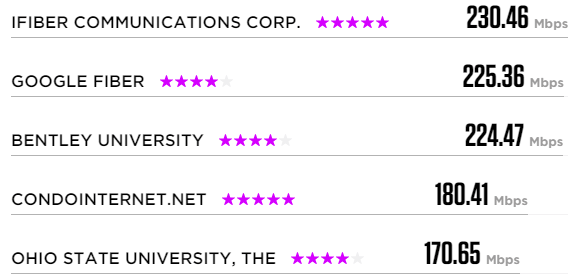- Qualcomm Launches Snapdragon 4 Gen 2 Mobile Platform
- AMD Launches Ryzen PRO 7000 Series Mobile & Desktop Platform
- Intel Launches Sleek Single-Slot Arc Pro A60 Workstation Graphics Card
- NVIDIA Announces Latest Ada Lovelace Additions: GeForce RTX 4060 Ti & RTX 4060
- Maxon Redshift With AMD Radeon GPU Rendering Support Now Available
Average Internet Download Speed In US Rises 10Mbps Year Over Year
It doesn’t seem like the Internet access situation in the US is getting much better, but those who are connected have a couple of reasons to smile.
Via Cord Cutters News, Ookla’s Speedtest website has reported a 10Mbps boost to the average download speed in the US this month, compared to the same month in 2014 – 33.9Mbps vs. 22.3Mbps.

Due to how these averages work, the 10Mbps gain could be attributed to a couple of ISPs that have seriously boosted their bandwidth, although overall, it seems to be that there are just more and more ISPs out there offering above 34Mbps nowadays. It’s worth noting that gigabit Internet isn’t the reason for the hike, as Ookla ranks just the 20 top ISPs with at least 100 tests per (and Google Fiber, for example, is not included in that).
That’s an interesting thing to note, because if you look at the current speed index, the peak of the biggest ISPs is 43.72Mbps (Verizon FiOS), whereas if you view by “All ISPs”, the 20th ISP listed peaks at 84.35Mbps (the highest is Washington-based ISP iFiber with 230.46Mbps).

Globally, Ookla shows that the average download speed is 22.6Mbps (note: this is only people who use Speedtest.net), while the average upload is 10.3Mbps.
I’m not sure if this has been common in the US, but in Canada, I know several people who’ve received automatic boosts to their Internet speeds, which could be highlighting the fact that most ISPs are suddenly realizing that they’re just one of multiple choices (for the lucky ones, at least). Just this past week, my ISP (Rogers) bumped my account from 50Mbps to 70Mbps for the same price, but like before, I get a 10Mbps boost – for some reason.
Interestingly, my lowly province actually ranks the highest for speeds in all of Canada. I find that a little interesting because it proves that just because you live in a massive province or state, it doesn’t guarantee that you’ll have access to truly fast broadband.
If there’s one thing I find a little depressing about Speedtest’s results, though, it’s that globally, people pay an average of $5/mo per Mbps (eg: $50 for a 10Mbps connection). Hopefully that’s something else that will rapidly change moving forward.




